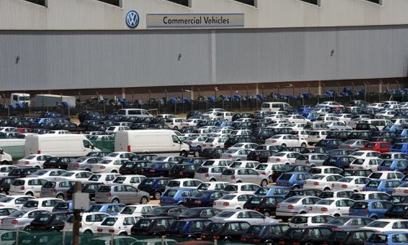JOHANNESBURG, Aug 19 – Some 30,000 South African auto workers downed tools over pay on Monday, bringing production to a halt at BMW, Toyota and other manufacturers, unions said.
“The strike started today at all the seven car manufacturing companies across the country,” Mpumzi Matungo, the treasurer of National Union of Metalworkers (NUMSA) told AFP.
The workers are demanding at least a 14 percent pay increase, but employers have offered eight percent with effect from July 1.
“That has been rejected, and that is why the workers have gone on strike,” he said. It’s an indefinite strike.”
Workers at BMW started striking last Thursday.
“We are not producing cars at all,” said Guy Kilfoil, the BMW spokesman told AFP.
The sector contributes around six percent to the country’s GDP and accounts for roughly 12 percent of the country’s exports. Last year South African exported 277,893 cars, including to the European Union market.
Some of the world’s leading car makers including Toyota, Volkswagen and General Motors have production plants in South Africa.
Work stoppages are common in South Africa in the middle of the year, when collective wage negotiations traditionally get underway.
Wage talks are also taking place in the volatile mining sector where dozens were killed in labour unrest last year.
Despite being the largest economy on the continent, South Africa is underperforming compared to other fast growing countries in the region, expanding only by 0.9 percent in the first quarter.
Last year the country registered a meagre 2.5 percent growth, hit by the effects of the post 2008 global financial meltdown and the eurozone recession.




































